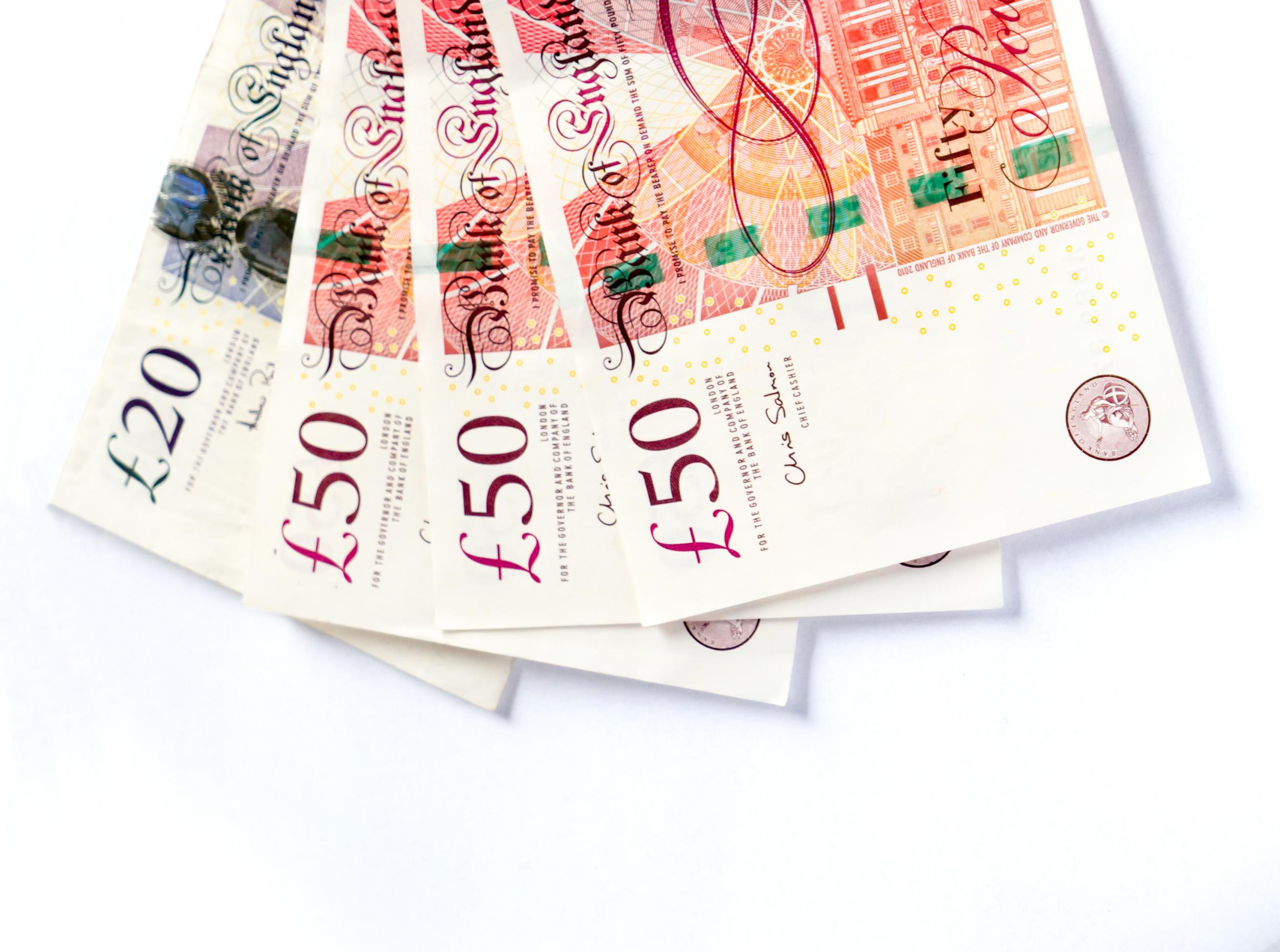New £50 notes to contain animal fat despite backlash from vegans and religious groups
£50 note to be made from same plastic used in the £5, £10, and £20 note

The Bank of England has confirmed that the new £50 will be made of plastic containing animal fat despite provoking backlash from vegans and religious groups.
On Tuesday, the bank confirmed that it has decided to continue using polymer for the £50 note made with a trace of tallow (an animal by-product) after “careful consideration” while putting the contract out to tender.
The plastic used in making the new £50 will be the same as that currently used in the £5, £10 and £20 notes.
In response to the Bank's latest announcement, Dominika Piasecka, spokeswoman for The Vegan Society, says the organisation is "disappointed" about the decision.
“This is problematic as it perpetuates the false belief in our society that we can use animals as we please," Piasecka tells The Independent.
“However, we hope this case will encourage other companies to review and eliminate the use of animals from their products.”
The Bank of England’s decision to continue using polymer follows years of backlash from the public who originally called for the production process of a £5 launched in 2017 to be changed.
In November 2016, a petition was launched calling for the end of tallow use in the note in favour of a vegan-friendly alternative. The petition garnered more than 138,000 signatures.
The petition's organisers said the use of animal fat was “unacceptable to millions of vegans, vegetarians, Hindus, Sikhs, Jains and others in the UK”.
Satish Sharma, the general secretary of the National Council of Hindu Temples, previously told The Independent that the Bank “completely ignored” the community’s concerns.
Mr Sharma continued, revealing that members of his community would be hit with a “crisis of conscious” as they would have to choose between taking a “financial hit” from not using the notes or going against their moral and religious beliefs.
Despite the criticism, the central bank said that switching to palm oil alternatives, as was originally suggested by campaigners, would be costly and raise questions about environmental sustainability.
The organisation added that its material suppliers were “unable to commit to sourcing the highest level of sustainable palm oil at this time”.
It has since produced the new polymer £10 and £20 using the plastic, which typically contains less than 0.05 per cent of animal fat.
In 2017, the Bank revealed it had run a public consultation into the use of animal fat in new bank notes.

From the 3,554 people who responded to the consultation, 88 per cent cent were against the use of animal-derived additives and 48 per cent were against the use of palm oil-derived additives.
In light of the consultation, the bank estimated that the cost of switching the material used in its current notes was £16.5 million over the next ten years.
“HM Treasury advised the Bank that it does not believe switching to palm oil derivatives would achieve value for money for taxpayers,” it explained.

This week, the Bank also announced that banknote printers De La Rue International Limited and with Australia’s CCL Secure won an eight-year contract to supply the polymer for the notes. The supply of polymer under the new contract will commence next year.
In February, the organisation said it had received over 227,000 nominations and 969 eligible names for the character to feature on the new £50.
“We’ll announce who’ll appear on the new note in summer 2019,” the Bank announced at the time.
The Independent has contacted the Bank of England for comment.
Join our commenting forum
Join thought-provoking conversations, follow other Independent readers and see their replies
Comments
Bookmark popover
Removed from bookmarks